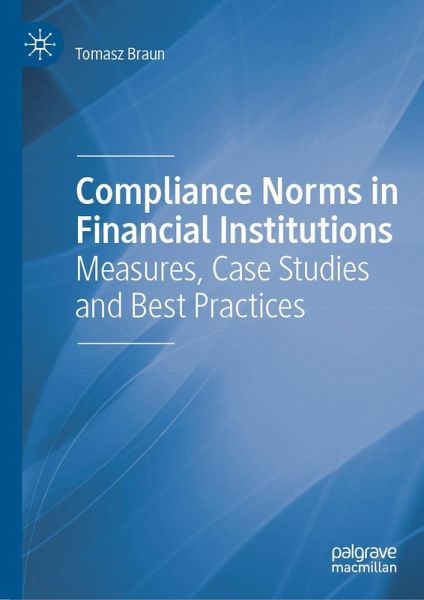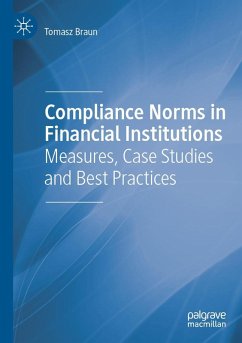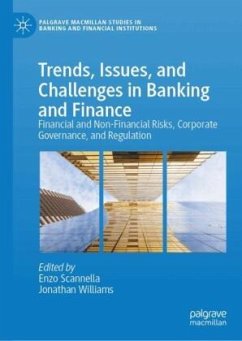
Compliance Norms in Financial Institutions
Measures, Case Studies and Best Practices
Versandkostenfrei!
Versandfertig in 6-10 Tagen
98,99 €
inkl. MwSt.
Weitere Ausgaben:

PAYBACK Punkte
49 °P sammeln!
Initially, introducing compliance functions within the financial industry had been forced by regulatory scrutiny. Later, it started to spread to other regulated companies, in particular those publicly listed. Now, compliance has become an asset of corporates that want to build their reliability among clients, shareholders, employees and business partners. This book looks at the efficiency of the compliance measures introduced and the best practices of building compliance norms.This recently observed practice of compliance was triggered by the expectation of regulators, shareholders, clients, b...
Initially, introducing compliance functions within the financial industry had been forced by regulatory scrutiny. Later, it started to spread to other regulated companies, in particular those publicly listed. Now, compliance has become an asset of corporates that want to build their reliability among clients, shareholders, employees and business partners. This book looks at the efficiency of the compliance measures introduced and the best practices of building compliance norms.
This recently observed practice of compliance was triggered by the expectation of regulators, shareholders, clients, business partners and the public for robust compliance mechanisms. This book looks at the vast interest in this topic among business people who strive to introduce the systems and the mechanisms of non-compliance risk management in their companies and at the uncountable difficulties and obstacles they meet. The book fills the gap of thorough analysis of this subject by pointing out the solutions successfully introduced in global financial organizations, and would be of interest to academics, researchers and practitioners in corporate finance, corporate governance and risk management.
This recently observed practice of compliance was triggered by the expectation of regulators, shareholders, clients, business partners and the public for robust compliance mechanisms. This book looks at the vast interest in this topic among business people who strive to introduce the systems and the mechanisms of non-compliance risk management in their companies and at the uncountable difficulties and obstacles they meet. The book fills the gap of thorough analysis of this subject by pointing out the solutions successfully introduced in global financial organizations, and would be of interest to academics, researchers and practitioners in corporate finance, corporate governance and risk management.












